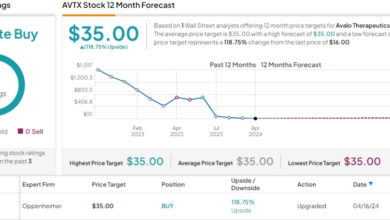Artificial intelligence comes to the backyard barbecue—and could double the market size


Grilling and barbecue have, for decades, been pretty bare-bones affairs. Throw a steak, brisket, or pork butt onto a grill, keep an eye on the temperature, and nurse a beer until it’s done. There have been innovations, of course, but the heart of the exercise was relatively tech-free. Like so many other things, though, that could be changing as artificial intelligence becomes more widespread.
Just as companies in other industries chase the stock surges that come with AI, the outdoor cooking industry is keeping a close eye on the technology as well. And smart grilling is one of the latest trends to expand the audience and make things easier for suburban pitmasters.
The outdoor cooking industry had sales of $6.8 billion in 2022. And some of the biggest names are publicly traded, though maybe not always by the names you see on the floors at Home Depot or Lowe’s. Middleby Corp., for instance, owns the Kamado Joe and Masterbuilt brands. Traeger Grills began trading in 2021. Weber, another giant in the industry, was publicly traded until last year when BDT Capital Partners opted to take it private. And W.C. Bradley Co., which owns Char-Grill, Pit Boss, and Oklahoma Joe’s among others, is currently privately held as well.
The audience, though, has stagnated a bit. Grills aren’t an annual purchase for most people. And while grill makers offer plenty of accessories to boost revenues between big purchases, from pizza stones to specialty pellets or charcoal, the manufacturer’s dream is to expand the audience without alienating the existing customer base.
“AI’s going to be interesting in the outdoor cooking space,” says Josh Silva, vice president of marketing at Middleby Outdoor. “There’s a balance between how much we provide consumers and what sort of level of convenience they want, because there is something to be said about tending fire and that experience of live fire. For us, it’s going to be incumbent to find the right balance of providing the right feature set in technology, whether it’s convenience or incremental engagement opportunities… You don’t want to take away the total experience.”
Proponents of AI in outdoor cooking say it simplifies the process. Seergrills, a startup out of the U.K., turned heads at CES earlier this year with the Perfecta, an AI-powered vertical infrared oven that reaches temperatures of over 1,600 degrees and cooks a steak in under three minutes, no flipping required. Built-in temperature sensors recognize when the food has reached your preferred temperature, whether that’s rare, medium, or well; then the heat shuts down.
“When using traditional cooking methods, there are approximately eight variables that one must consider,” said Suraj Sudera, CEO and founder of Seergrills. “These include food thickness, fat and water content, start temperature, carryover temperature, environmental temperature, heat-source variability, flare-ups, and food versatility. It requires years of practice for the most experienced grill masters to perfect their skills and surpass common challenges such as dryness or over- and undercooking. Grilling with AI offers significant advantages by allowing the system to monitor variables and account for them by controlling the cooking system.”
Perfeta’s AI uses subjective feedback from the user, and objective data from the sensors to improve, taking readings every second of the cook time.
All of the players in the field are putting a greater emphasis on smart grilling technology. Weber, in 2021, acquired smart appliance and technology company June, which it had previously worked with to develop its Weber Connect grill technology.
New models from Kamado Joe and Masterbuilt are also a lot smarter than grills to which most people are accustomed. The Kamado Joe Konnected will light charcoal with the touch of a button and let users set their preferred temperature, keeping the grill at just that level—doing away with the sometimes onerous task of constantly monitoring the fire for multihour cooks so the food finishes as desired.
The Masterbuilt Gravity XT, meanwhile, which will come out in April, offers a gravity-fed charcoal system that provides indirect heat via a fan and digital controller. Like the Konnected, it maintains the optimal temperature electronically without the need for human monitoring, with roughly 2.5 times the cooking space of an average grill.
The point of that technology? Convenience. Gas grills became popular because people could instantly start a fire, cook what they wanted, and then get on with their day, without worrying about lighting the grill and maintaining a constant temperature. By adding AI and smart features to new grills, whether charcoal or electric, manufacturers are hoping to increase the amount of time people spend cooking outdoors beyond the weekend.
Kamado cooking, for instance, has a market share of just 3% of the total cooking market, in part because the process can be intimidating. Adding connected technology, Middleby hopes, will expand that market.
“We designed this product [the Kamado Joe Konnected] to go after a new category of folks,” says Silva.
In adding these features to new grills, though, the company wants to be careful not to alienate current loyal users.
“That’s why we left the ability to control things manually,” says Silva. “We realized there was a subset of our core users who like that manual experience. It’s really a balancing act in a lot of ways to say how much technology is too much… AI was the talk track for CES, but what does it really mean, especially in our space? Is it a system that helps refine your cooking process? For us, where we’re currently at, it’s more about an algorithm and refining that to become more intelligent over time.”
Sudera agrees that traditionalists will make up most of the market for the short term. Over time, though, he expects AI and other smart features to become more standard on outdoor cooking devices.
“[As] with most things in life, there is going to be an element of the market that remains loyal to traditional techniques, just like the people who still drive with stick shift,” he says. “However, over time, convenience-providing technologies gradually expand their market share, starting with modest adoption until reaching a critical mass where they largely supplant older technologies.”
If true, that could dramatically expand the market. Allied Market Research estimates that by 2032, the barbecue grill market will more than double in value to $12.8 billion.
Source link




